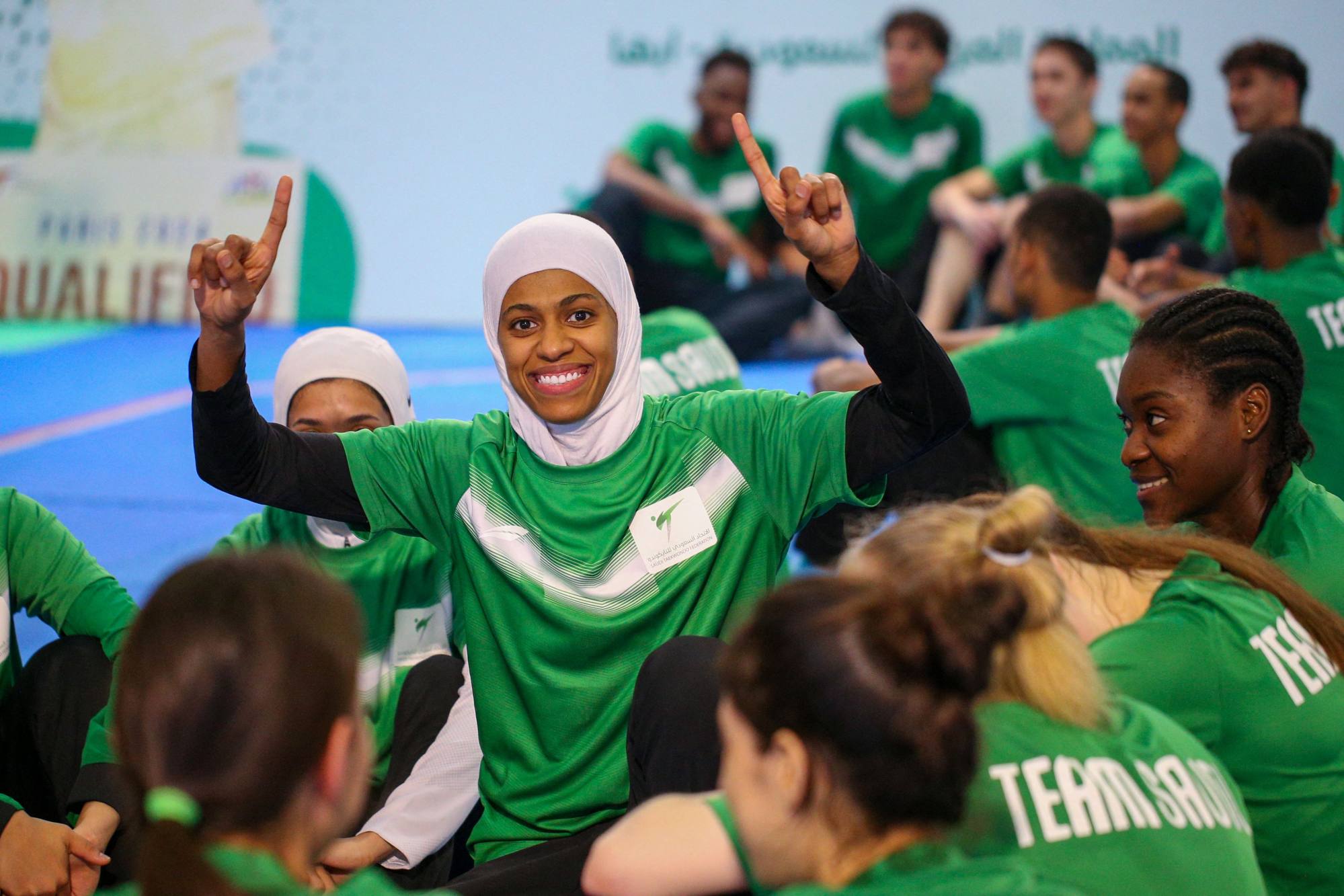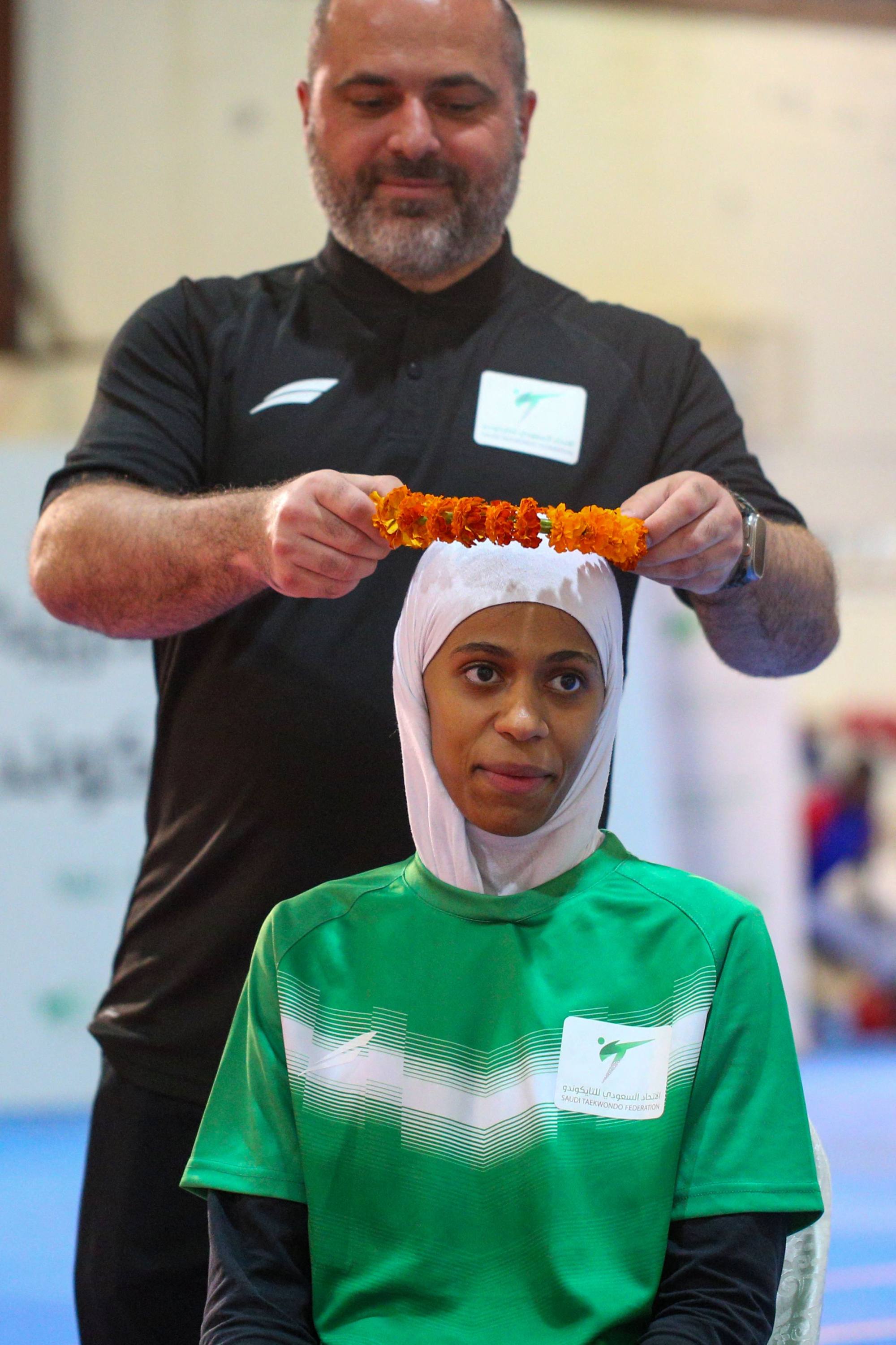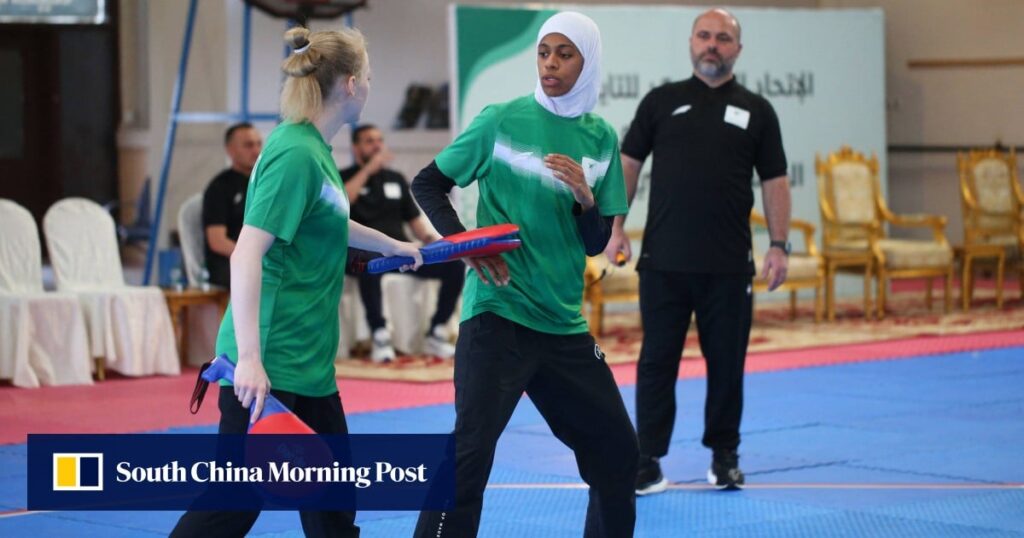“I started taekwondo when I was eight years old and there was no support like there is now,” Abu Taleb, who also has a law degree, said after a recent training session in the southern mountain city of Abha.

“I was always playing with the boys in the boys' center. There were no girls there to begin with. I used to wear my hair up so no one would know I was a girl.”
Playing against boys “made me stand out and stronger. I love the challenge,” she added.
For decades, restrictions on women's rights in Saudi Arabia extended to participation in sports as spectators.
While privileged Saudi women could take part in tennis and soccer matches on private property, official support for women in other sports was limited.
In London 2012, judoka Wojdan Shaherkani became the first Saudi Arabian woman to compete in the Olympic Games, at a special invitation from the International Olympic Committee.
However, her historic debut lasted just 82 seconds as she was eliminated in the first round.
Another invited athlete, American-born Sarah Attar, finished far last in the 800-meter heats on the track.
Attar was one of four Saudi Arabian women given wild cards to compete in the 2016 Olympics, with two more given wild cards for the 2020 Tokyo Games.
But Abu Taleb is naturally the first to qualify.
Under Saudi Arabia's de facto ruler, Crown Prince Mohammed bin Salman, who inherited the throne in 2017, Riyadh has sought to revamp its menacing image by expanding women's rights, allowing them to drive and encouraging them to work.
Authorities also lifted a ban on women entering football stadiums and invested in developing the women's national football team.
Abu Taleb used his newfound national support to win gold at the 2020 Arab Taekwondo Championships and bronze at the 2022 Asian and World Championships.
Earlier this year, she won gold at the Asian Taekwondo Championships.

She has high hopes for Paris, she said, standing near a large banner bearing her picture at the Abha training centre.
“From the beginning, I dreamed of becoming a world champion, going to the Olympics and winning a gold medal,” she said.
Saudi Arabia has previously won two bronze medals and two silver medals in the men's Olympic Games.
Abu Taleb's Olympic success will give further impetus to Saudi Arabia's campaign to reinvent itself as a sports hub.
The Kingdom will host the Asian Cup football tournament in 2027, the Asian Winter Games in 2029 and the Asian Games in 2034, as well as regularly hosting Formula One races and heavyweight boxing championship matches.
Last year it also became the only bidder to host the 2034 soccer World Cup and has spent more than $1 billion to attract top footballers to the Saudi Professional League.
Saudi Arabia's Sports Minister Prince Abdulaziz bin Turki Al Faisal told AFP in 2022 that hosting the Olympics was the government's “ultimate goal”.
Despite competing in a relatively low-profile sport, Abu Taleb has attracted the attention of those involved.
Saudi Arabia has hired Russian coach Kurban Bogdaev, who guided Tunisia's Mohamed Jendoubi to a silver medal at the Tokyo Olympics, as coach of the Saudi taekwondo team.
“When I first saw Donya, her level was low, but I could see her desire to improve and achieve,” Bogdaev said, adding that he didn't necessarily see her as an Olympic hopeful initially.
But she “practices hard, always believes in herself and has confidence in her abilities,” he added.
Donning a blue helmet and using kicking pads, Abu Taleb deftly fended off blows from athletes from Russia and Uzbekistan at a recent training session organized by the Saudi Arabian Taekwondo Federation in Abha.
“Developing Olympic champions takes years and is a national project,” said the federation's president, Shaddad Al Omari.
Abu Taleb quickly went from being an unranked athlete to one near the top of the rankings.
As the Olympics approach, Abu Taleb is well aware of the pressure he will be under but insists he can handle it.
“As the first Saudi Arabian woman to qualify for the Olympics, I've reached the kill or be killed stage,” she said.
“I got to a place where I had to accomplish something.”

